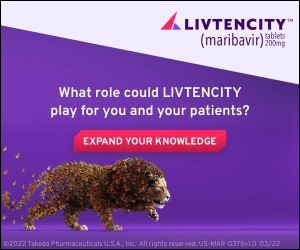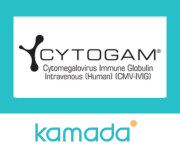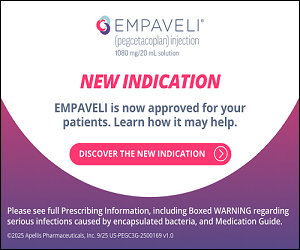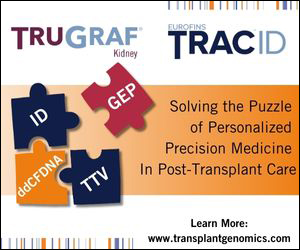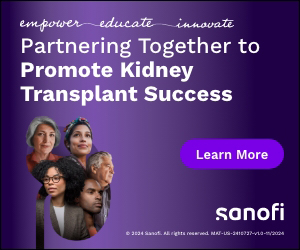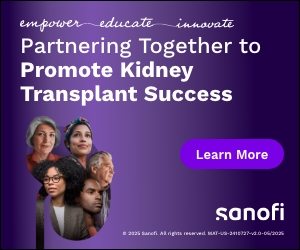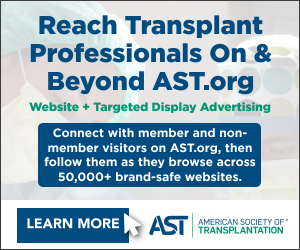 |
|||||||||||||||||||||||||||||||||||||||||||||||||||||||||
| Past Issues | Subscribe | Advertise | myAST.org | |||||||||||||||||||||||||||||||||||||||||||||||||||||||||
Important Dates
AST News
Fellows Symposium on Transplantation
Know an early-career professional or student interested in transplantation? Encourage them to check out the AST Fellows Symposium! This unique program offers expert-led sessions and valuable networking with leaders in the field. It’s a great opportunity for fellows, residents, pharmacists, nurses, and students to explore career paths in transplant and build lasting connections.
Support the Fellows Symposium on Transplantation!
The 2025 Fellows Symposium on Transplantation is coming up—and for the first time, it's heading to Chicago! This unique event connects fellows, residents, students, and other trainees with leaders in the field, offering invaluable opportunities for education, mentorship, and networking.
It costs about $1,500 to support just one trainee’s participation. We’re aiming to raise $15,000 to ensure more aspiring transplant professionals can attend.
Your gift will help cover travel, lodging, and meals—and directly support the next generation of transplant surgeons, physicians, pharmacists, researchers, and allied health professionals.
Registration Open for International Transplantation Science 2025
On behalf of the AST, the European Society for Organ Transplantation (ESOT), and The Transplantation Society (TTS), we are excited to announce that registration is officially open for the International Transplantation Science Meeting 2025.
ITS 2025 marks the fourth tri-society event in this global collaboration, bringing together top experts, early-career researchers, and transplant professionals worldwide. This meeting offers an exciting forum to explore cutting-edge basic and translational science in and beyond the field of transplantation.
A Message from AST’s New President
The AST is proud to welcome Dr. David Foley as our new President. In his first message to the membership, Dr. Foley reflects on the Society’s progress, the important changes shaping our field, and the priorities he will champion in the year ahead.
Read Dr. Foley’s full message to learn more about the vision and initiatives guiding the AST in the year ahead.
AST Announces 2025 Board of Directors Election Results
The AST is pleased to announce its 2025–2026 Board of Directors election results. We extend a warm welcome to the new leaders who will help guide the Society in the year ahead.
Congratulations to the 2025 AST Achievement Award Recipients
The AST announced the recipients of its 2025 Achievement Awards, including the Lifetime Achievement Award and Transplant Advocacy Award, at the World Transplant Congress (WTC) in San Francisco, CA. The recipients were awarded for their achievements and contributions to the AST and the field of transplantation.
Living Donation and Pregnancy-Related Complications: State of the Evidence and Call To Action
Available on YouTube
In February 2023, the American Society of Transplantation’s Women’s Health Community of Practice (WCHOP) hosted a virtual Controversies Conference focused on reproductive health, contraception, and pregnancy after transplantation and living donation. This AST Journal Club highlights research presented at that conference and explores how creating a registry of donor candidates could help address key questions in this area and better inform prospective donors as they make decisions about donation.
Updates on Efforts and Resources Related to Transplant Nephrology Training
In fall 2024, the ACGME approved the application from the joint ASN-AST Task Force to recognize transplant nephrology as an accredited subspecialty of nephrology. By supporting a broad and nationwide adoption of uniformly rigorous transplant nephrology training, ASN and AST hope to improve the quality of care provided to patients in both the pre-and post-transplant phases.
A webpage has been created to share ongoing updates and resources related to this new accreditation.
Transplant Community Survey on the Pre-Transplant Mortality Ratio Metric
This "Understanding the Impact of the Pre-Transplant Mortality Ratio Metric Implementation" survey focuses on how transplant professionals perceive and respond to the recently implemented pre-transplant mortality ratio metric by UNOS. The goal is to assess how the metric has influenced transplant center practices, particularly in patient listing and organ utilization.
New AJT Article: Transplant Recipients Share Perspectives on Immunosuppressant Needs
Last year, with your support, AST conducted a national patient survey that received nearly 10,000 responses from transplant recipients. The goal: to better understand perceptions of unmet immunosuppressant needs. The findings from this important research have now been published in the American Journal of Transplantation.
Share Your Perspective: Transplant Access and the Criminal Justice System
The AST Psychosocial and Ethics COP (PSECOP) is conducting a short survey to better understand transplant professionals’ perspectives on transplantation for patients who are incarcerated or involved in the criminal justice system. The results will help inform future policies and practices to improve care for this population.
The survey takes just 5–10 minutes to complete and is open to transplant professionals (coordinators, social workers, ILDAs, physicians, etc.) currently working at a U.S. transplant center. Please feel free to share the link with colleagues.
Questions? Contact the research team at emorytransplantresearch@emory.edu or reach out to Principal Investigator Megan Urbanski, PhD, MSW at megan.urbanski@emory.edu. This study has been approved by the Emory University Institutional Review Board.
AST Public Policy Form
The AST developed a survey aimed at soliciting your perspectives on legislative and regulatory issues that significantly influence both patient care and professional practice. Our goal is to establish a platform for our membership to share their invaluable ideas and perspectives and actively engage with the Public Policy Committee and AST leadership. We look forward to your input as we navigate the dynamics of our ever-evolving landscape of transplant care and practice.
Upcoming Education
Key Articles in Transplantation
Hepatitis B Virus NAT Positive Donors in Non-Hepatic Organ Transplant: Quantifying Viral Loads to Optimize Recipient Risk Stratification and Management in the Prevention of Donor-Derived Infection
Transplantation is one of the few life-saving therapies for patients with end-stage organ disease, yet organ availability remains restrictive. Expanding donors to include those with hepatitis B virus (HBV) infection, incorporating HBV nucleic acid amplification testing (NAT) positive donors, could improve organ access. However, the risk of donor-derived HBV transmission and recipient management of organs transplanted from HBV NAT-positive donors, particularly in thoracic organ recipients, is limited. We conducted a single-center retrospective study to assess the safety and outcomes in recipients of non-hepatic organ transplants from HBV NAT-positive donors.
dd-cfDNA Significantly Improves Rejection Yield in Kidney Transplant Biopsies
Donor-derived cell-free DNA (dd-cfDNA) is a biomarker that enables the early detection of immune-mediated graft injury. This study evaluated the clinical utility of dd-cfDNA in predicting the presence of biopsy-proven rejection (BPAR). We analyzed 1,070 biopsies from 1,743 kidney transplant recipients enrolled in the prospective, multicenter Kidney Allograft Outcomes AlloSure Registry (KOAR). Biopsies were grouped into surveillance or for-cause groups and stratified by dd-cfDNA status: elevated, non-elevated, or not tested. Rejection yield was significantly higher when dd-cfDNA was elevated: 39% vs. 7% in the surveillance group and 47% vs. 12% in the for-cause group (p<0.0001). Biopsies with elevated dd-cfDNA and rejection diagnoses more frequently demonstrated ABMR and mixed rejection, whereas biopsies performed with non-elevated dd-cfDNA most often showed no rejection, borderline, or TCMR 1A.
Survival of Transplanted Allogeneic Beta Cells with No Immunosuppression
The need to suppress a patient’s immune system after the transplantation of allogeneic cells is associated with wide-ranging side effects. We report the outcomes of transplantation of genetically modified allogeneic donor islet cells into a man with long-standing type 1 diabetes. We used clustered regularly interspaced short palindromic repeats (CRISPR)–CRISPR-associated protein 12b (Cas12b) editing and lentiviral transduction to genetically edit the cells to avoid rejection; the cells were then transplanted into the participant’s forearm muscle. He did not receive any immunosuppressive drugs and, at 12 weeks after transplantation, showed no immune response against the gene-edited cells.
|
|||||||||||||||||||||||||||||||||||||||||||||||||||||||||

